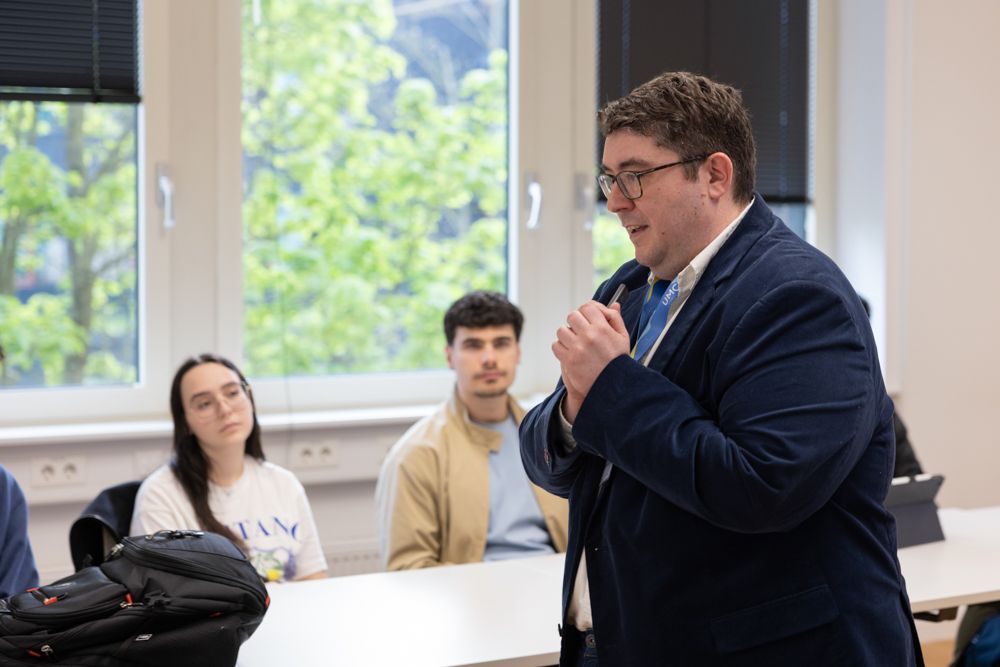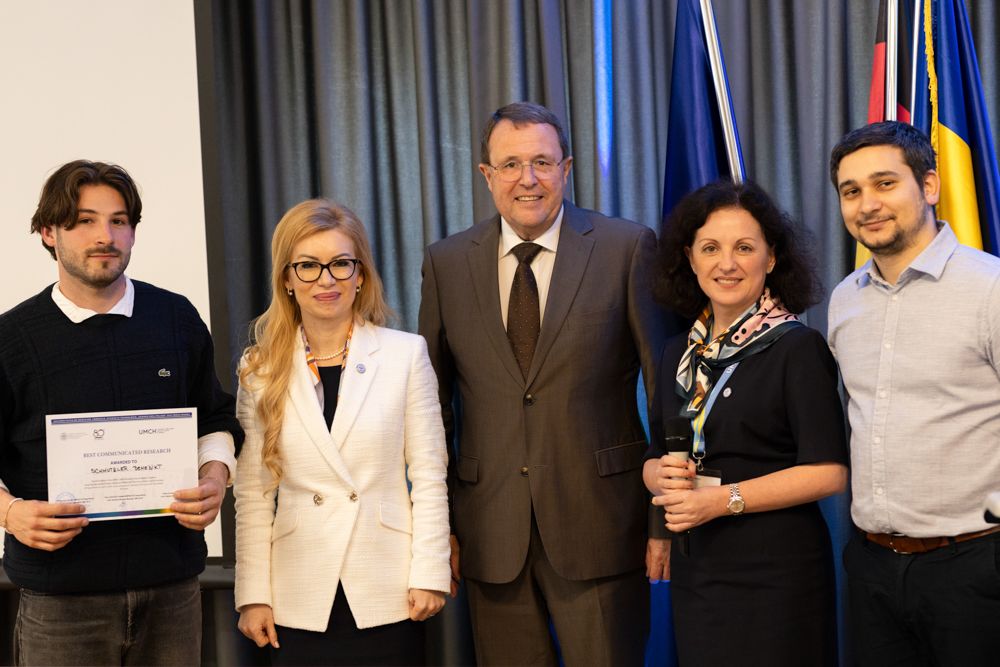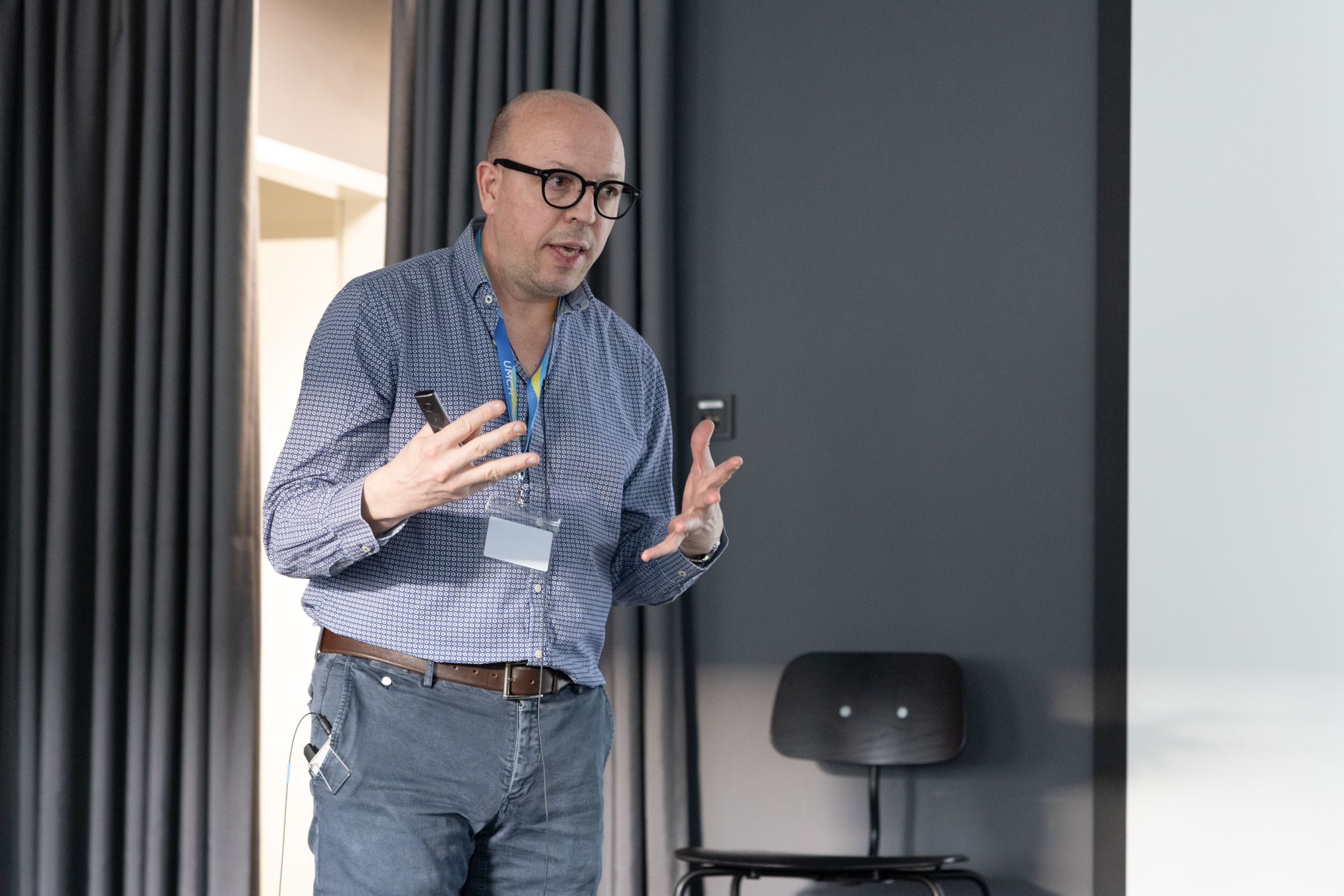Germany’s first international medical campus
Exclusive. Personal. Individual.
- 6-year medical degree program in English with an international campus flair
- Practice-oriented lessons in small groups
- Study in Germany. Act globally. Be part of a large community from over 40 nations
- Clinical-practical training in German and international teaching hospitals
- State-of-the-art and highly digital university campus in Hamburg
- Recognized in the EU, the United Kingdom, the USA, Switzerland, Norway, UAE, India and many other countries
- Qualification after graduation for USMLE, UK (no PLAB required), etc.
- Doctorate possible at UMFST-UMCH
- Strong in research, interdisciplinary, practice-oriented
This is how the online application process works at UMFST-UMCH
1.
Register via our online application portal.2.
Upload your application documents.3.
Motivation-Based Interview in English and Brief Evaluation – All Conveniently Online from HomeYour medical preparatory course in just 3 weeks or 3 months.
Your successful start to medical studies begins here. With our preparatory courses, you will acquire the fundamental knowledge to begin medical studies at UMFST-UMCH.
All information about applying for studies at UMFST-UMCH
The UMFST-UMCH application process
Secure your place on your dream degree course for the winter semester today.
Doctors made in Germany - Top destination for your career
In Germany you will have a free choice of specialty after graduation - no competition or exam required. Automatic license as a doctor can be obtained immediately after graduation - no licensing exam required.
University transfer to UMFST-UMCH
Have you already started studying medicine at another university? At UMFST-UMCH, you can continue your studies from the 2nd academic year.
Is there no suitable date for you?
No problem, we are flexible! Simply arrange an individual appointment. Feel free to contact us.
Students share their experiences and give exclusive insights
Inside UMFST-UMCH
Students report on the modern medical campus and share their experiences with the first-class equipment, the practice-oriented training, the various leisure opportunities, and the attractive location of the campus. Watch the clips and get exclusive insights and useful advice. Learn directly from our students why UMFST-UMCH is the perfect place to study and live. Get a comprehensive picture of campus life and gather valuable tips.
All news about UMFST-UMCH at a glance
News

5/9/2025
Reach Higher with Dr. Cornelius Jacobs
As part of the Reach Higher lecture series, we had the pleasure of welcoming PD Dr. Cornelius Jacobs, Head of the Spine Department at St. Remigius Hospital Leverkusen, to UMCH.
Important dates and university events.
The Most Exciting Upcoming UMFST-UMCH Events at a Glance!
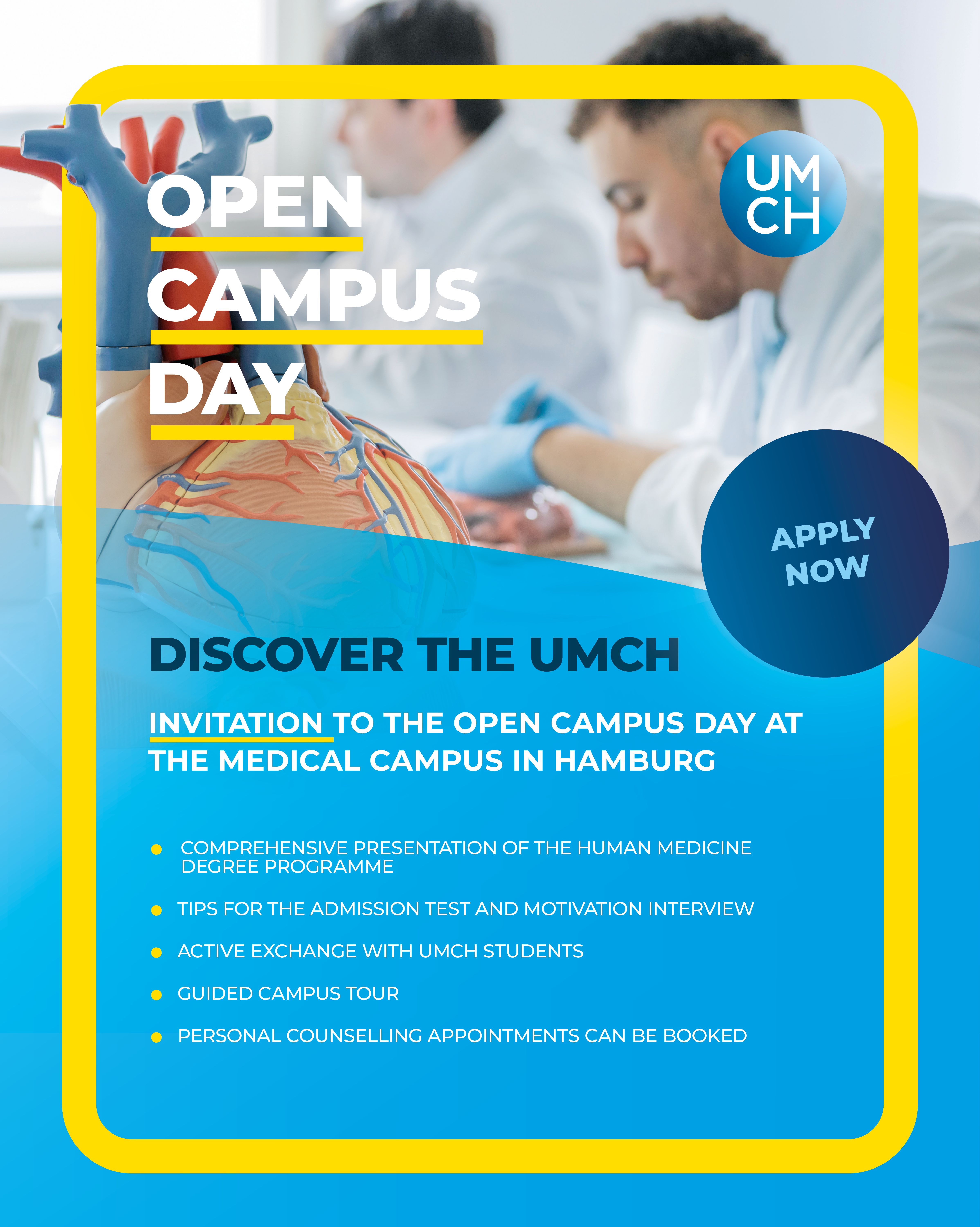
From the lecture hall to the teaching hospital
Our vlog guides you through student life!
Special features at a glance
Clinical teaching, research, & holistic education
Teaching hospitals & teaching practices
Our network of teaching hospitals and teaching practices
Benefit from our extensive network of teaching hospitals, teaching practices, and medical institutions in Germany and Europe. Our students acquire comprehensive practical skills and complete their clinical-practical training in nationwide hospitals and other medical institutions. They learn how to handle patients, get to know their future daily work routine, and gain experience.
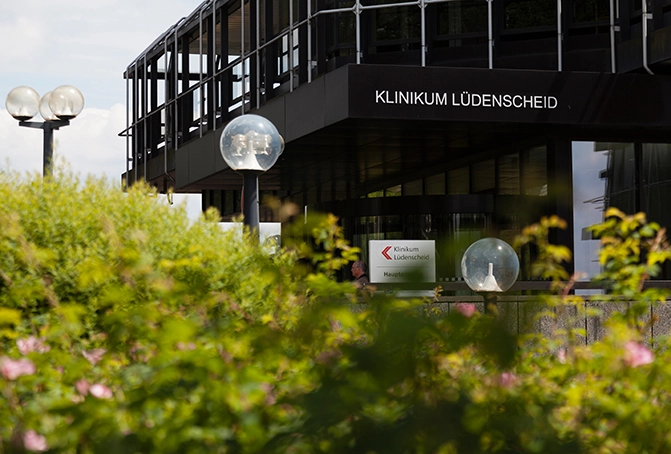
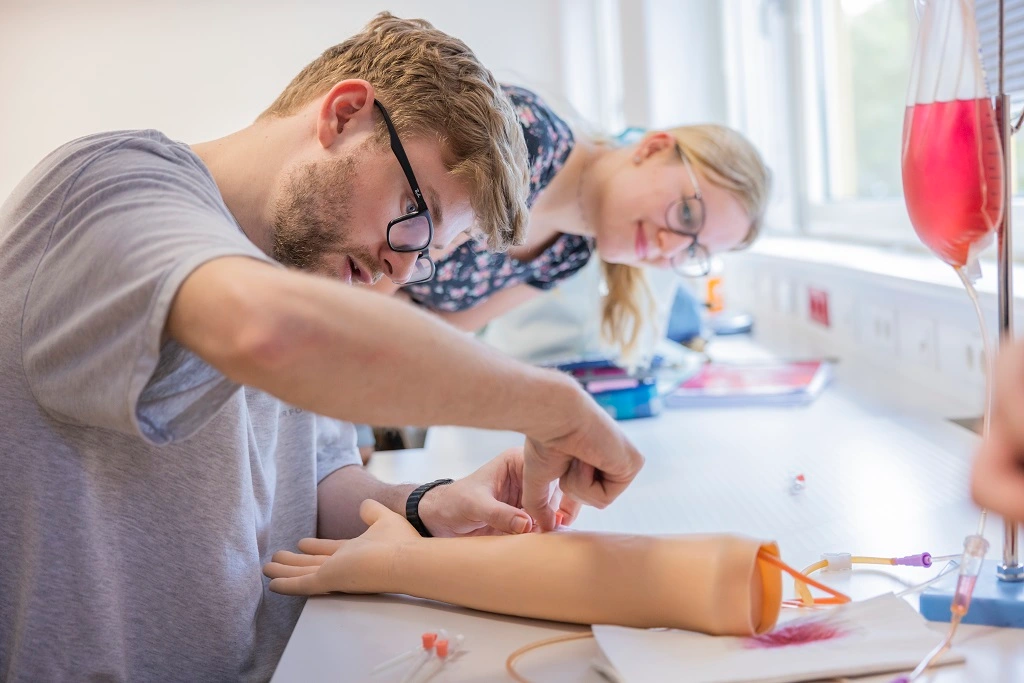
Our Medical Foundation Tracks – Preparatory courses for medical studies
Before starting their studies, students are offered paid preparatory courses in English that are specifically designed to prepare them for medical studies.

Research focus areas of UMFST-UMCH
The university's research profile covers a variety of individual scientific projects and numerous interdisciplinary collaborations. A particular focus is placed on topics such as cancer research and cardiovascular sciences...

Junior Researcher Academy
To inspire students for research, the Junior Researcher Academy was created: a series of events in which students learn the basics and new perspectives of science...

